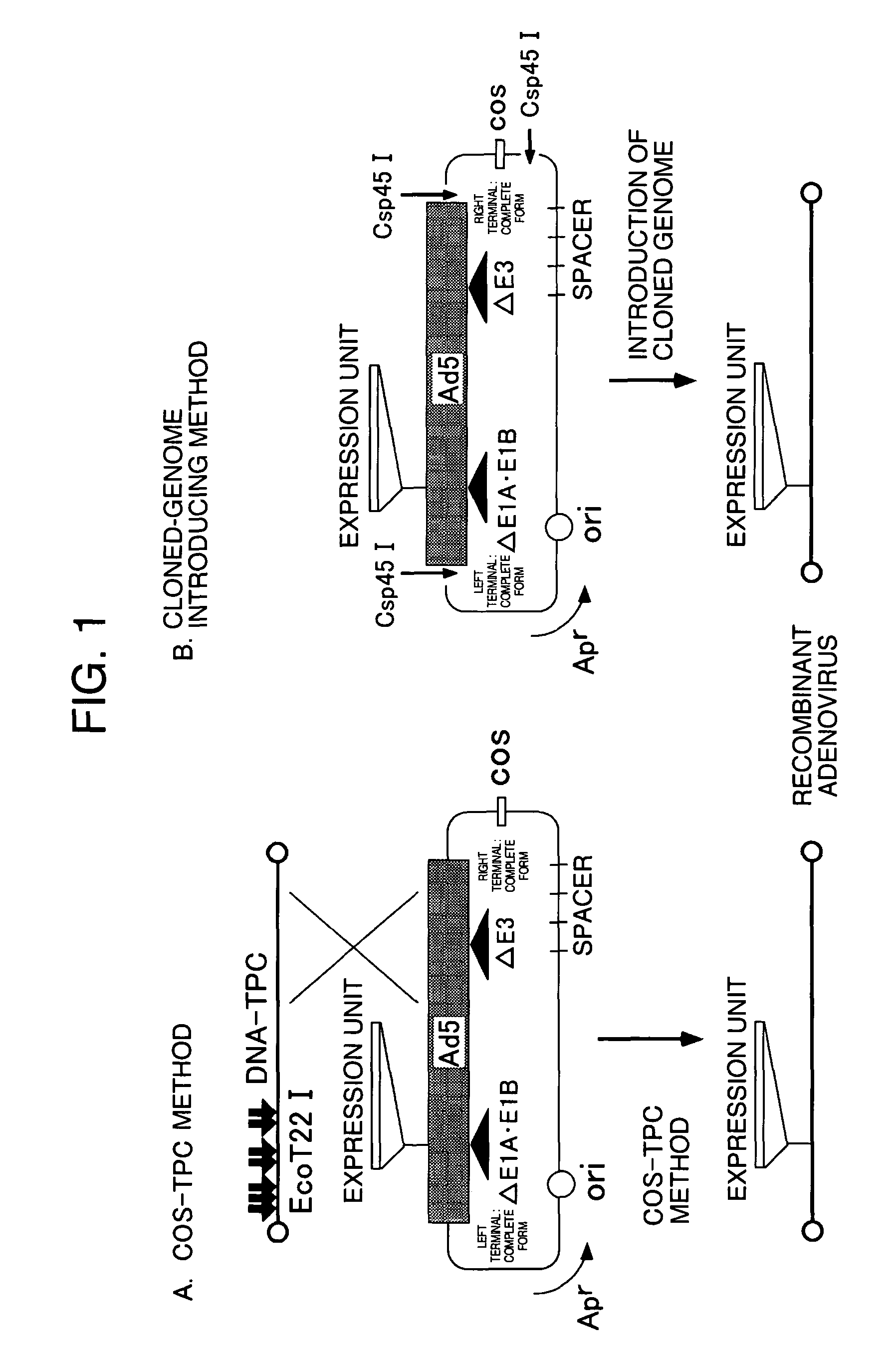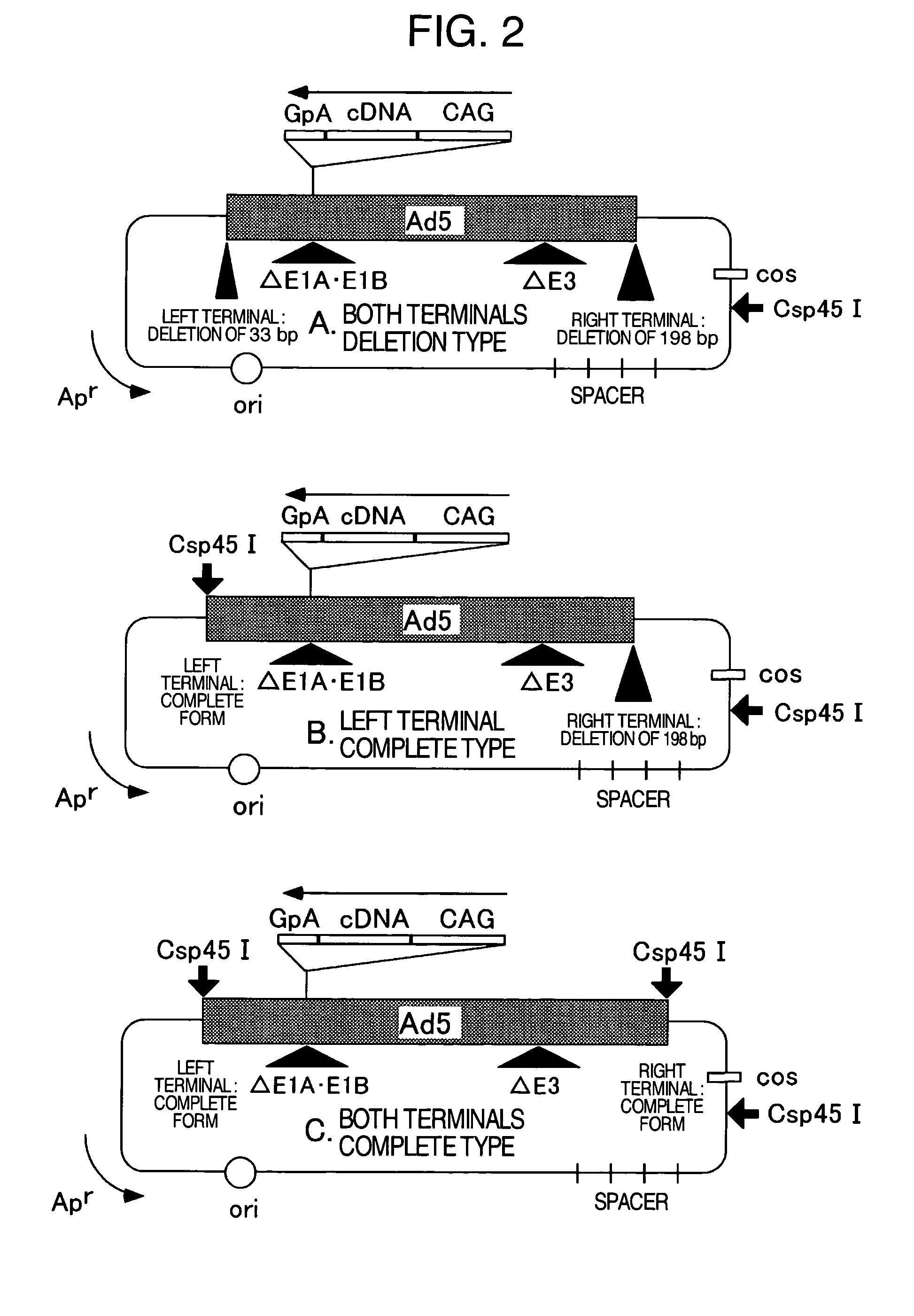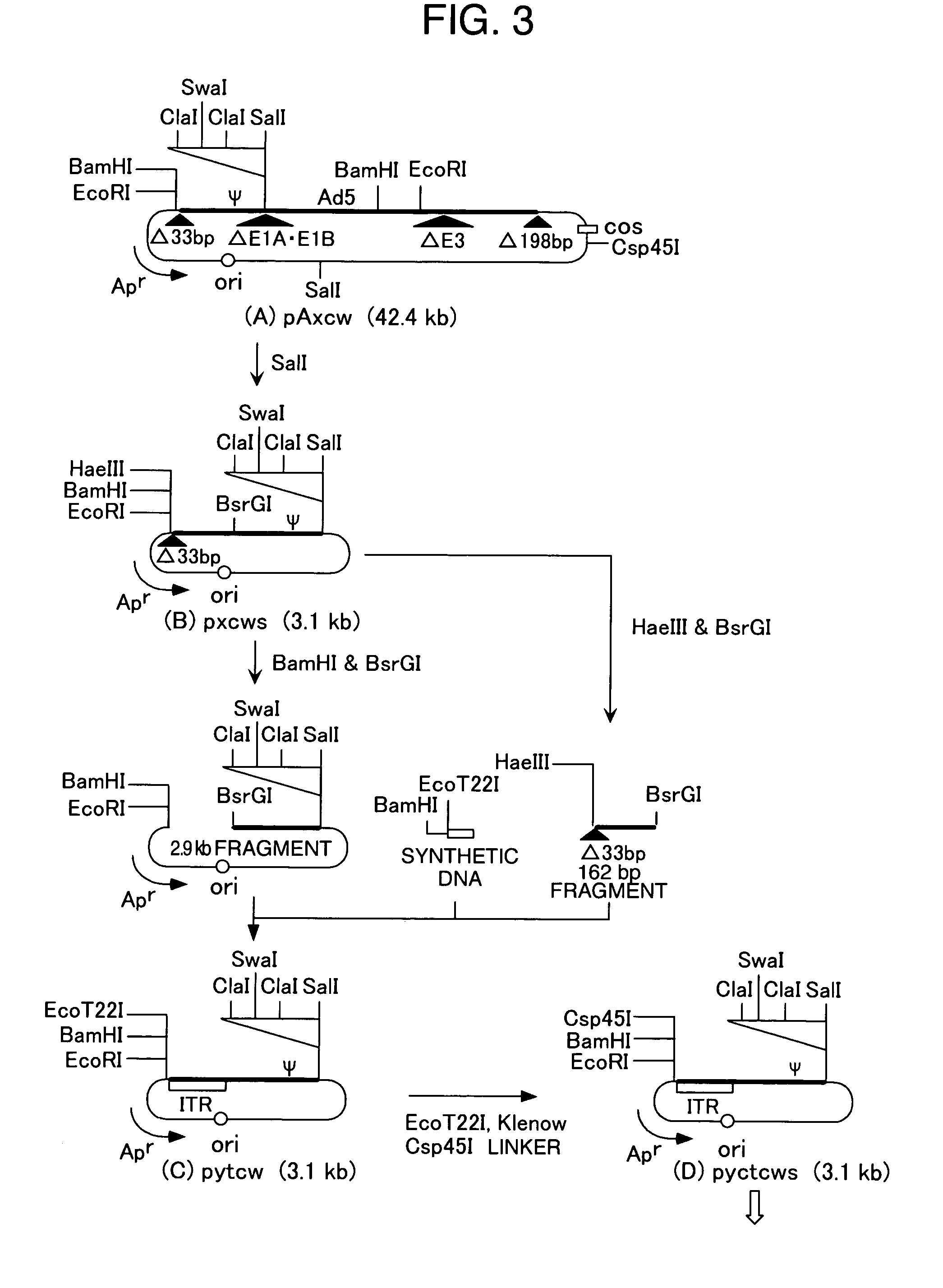Cosmid vector
a cosmid vector and cosmid technology, applied in the field of new cosmid vectors, can solve the problems of complex cos-tpc method, low generation efficiency of adenoviruses of this method, and low efficiency of generating methods
- Summary
- Abstract
- Description
- Claims
- Application Information
AI Technical Summary
Benefits of technology
Problems solved by technology
Method used
Image
Examples
example 1
Construction of a Cosmid Vector having Adenoviral Genome with the Complete Sequence of both Terminals
[0113] The cosmid vector pAxcw (the cosmid pAdex1cw described in JP-A-8-308585, page 15, is identical with the cosmid pAxcw) contains a major part of the genome of human adenovirus type 5 but does not contain E1 and E3 gene regions and is devoid of 33 bp from the left terminal of the adenoviral genome and 198 bp from the right terminal (cosmid vector both terminals deletion type) (see FIGS. 2A and 3(A)). The cosmid vector pAxcw was digested with SalI and was self-ligated to obtain the plasmid pxcws (3.1 kb, FIG. 3(B)) which was just containing about 0.4 kb portion from the left terminal of the adenoviral genome and the other portion of the adenoviral genome was removed.
To construct a plasmid containing the complete sequence of the left terminal ITR, the following manipulation were performed.
[0114](a) The plasmid pxcws was digested with BamHI and BsrGI to obtain a DNA fragment of abo...
example 2
Construction of a Cosmid Vector having an Expression Unit Inserted therein
(1) Construction of a Cosmid Vector having an Expression Unit of a Red Fluorescent Protein Derived from a Coral
[0118]A cosmid vector pAxCAwt (FIG. 6(A)) has the same nucleotide sequence of adenoviral genome (both terminals deletion type) as that of the cosmid vector pAxcw and has a CAG promoter (Niwa H. et. Al., Gene, Vol. 108, 193-200, (1991) and Japanese Patent No. 2824434) inserted in the E1 gene deletion site in the left side orientation (i.e., the reverse direction of E1 gene transcription direction) (Kanegae Y. et. al., Nucleic acid Res., Vol. 23, 3816-3821 (1995)). The cosmid vector pAxCAwt has a SwaI site for inserting a foreign gene, between the CAG promoter and a polyadenylation signal.
[0119]A gene fragment encoding the red fluorescent protein (RedE) derived from a coral was prepared from a commercially available plasmid, pCMV-DsRed-Express (the company Clonetech Laboratories, Inc). The plasmid pCMV-...
example 3
Construction of a Plasmid Removing the Majority of the Adenoviral Genome and Confirmation of the Expression of an Inserted Gene
(1) Construction of a Plasmid Removing the Majority of the Adenoviral Genome
[0123]Cosmid vectors pAxCARedEit and pAxCAGFPit constructed in Example 2 have restriction enzyme SalI site and NruI site immediately upstream of the CAG promoter and within the spacer region. Therefore, a plasmid removing the majority of the adenoviral genome (containing about 0.4 kb from the left terminal) can be constructed by self-ligation of these cosmid vectors after digestion with the restriction enzyme.
[0124]After pAxCARedEit was digested with SalI, the DNA fragment was self-ligated. Then, Escherichia coli DH5 was transformed with the self-ligated DNA to obtain plasmid pxCARedEit (6.1 kb) removing the majority of the adenoviral genome and the spacer region.
[0125]Similarly, the cosmid vector pAxCAGFPit was digested with SalI and self-ligated to obtain plasmid pxCAGFPit (6.2 kb)...
PUM
| Property | Measurement | Unit |
|---|---|---|
| radiation wavelength | aaaaa | aaaaa |
| radiation wavelength | aaaaa | aaaaa |
| time | aaaaa | aaaaa |
Abstract
Description
Claims
Application Information
 Login to View More
Login to View More - R&D
- Intellectual Property
- Life Sciences
- Materials
- Tech Scout
- Unparalleled Data Quality
- Higher Quality Content
- 60% Fewer Hallucinations
Browse by: Latest US Patents, China's latest patents, Technical Efficacy Thesaurus, Application Domain, Technology Topic, Popular Technical Reports.
© 2025 PatSnap. All rights reserved.Legal|Privacy policy|Modern Slavery Act Transparency Statement|Sitemap|About US| Contact US: help@patsnap.com



